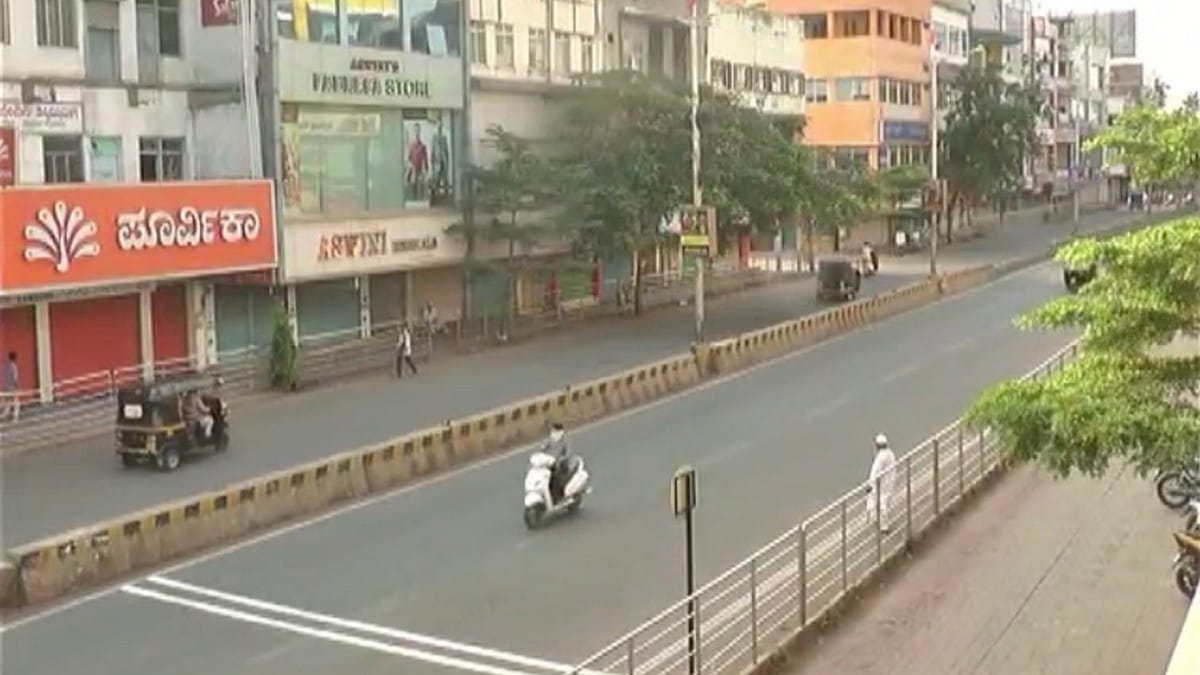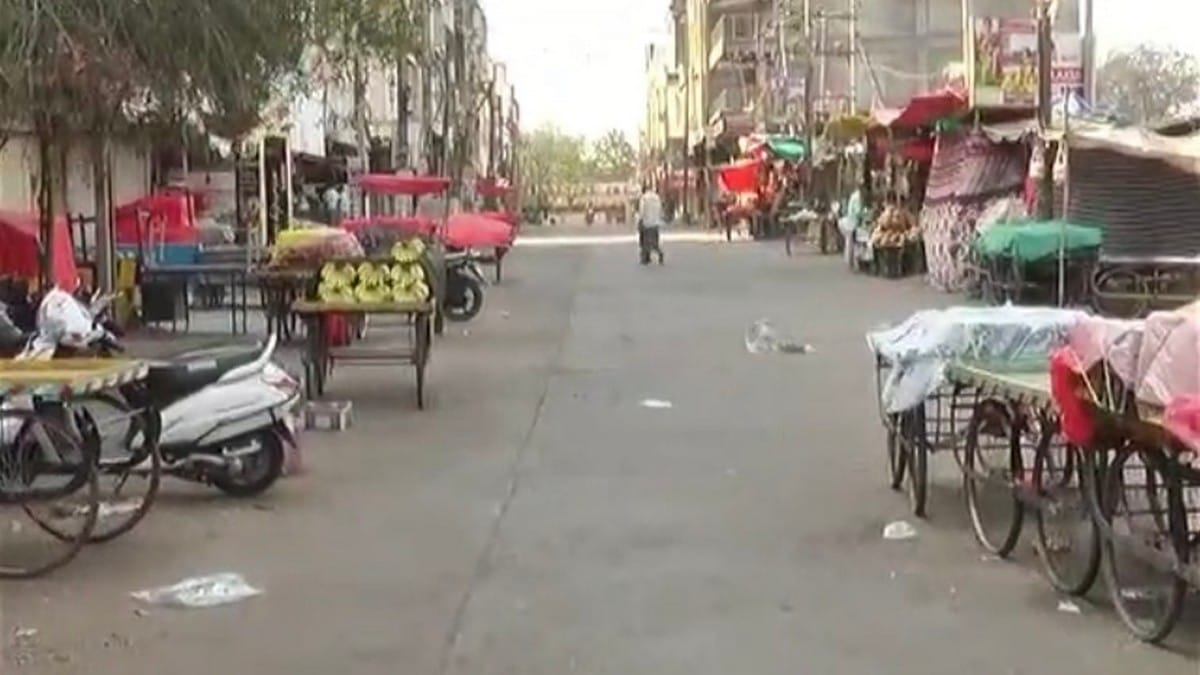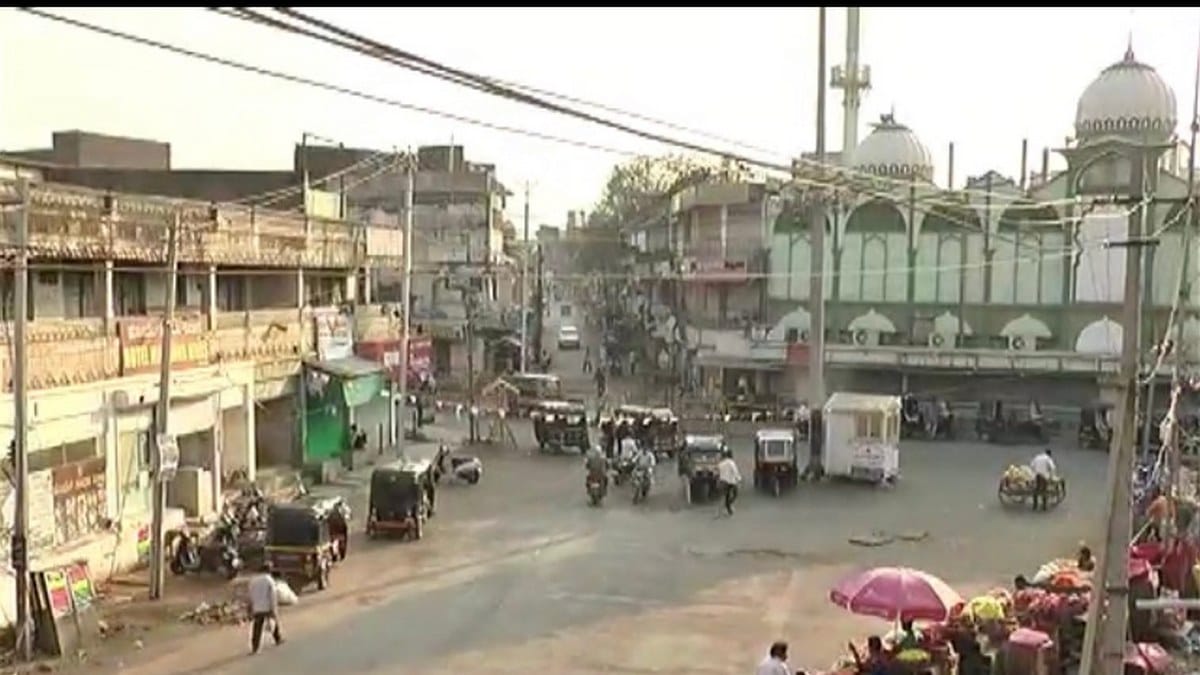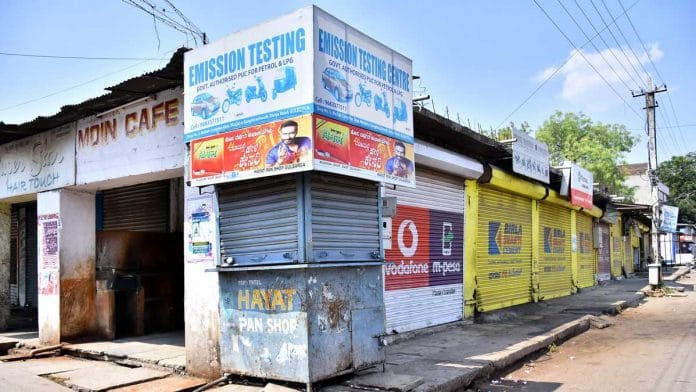Bengaluru: The first death due to COVID-19 in India occurred in Karnataka’s Kalaburagi nine days ago, and since then, the district administration has ordered a complete clampdown to tackle the situation, bringing the city and the district to a grinding halt.
“Both Section 133 (conditional order for removal of nuisance) and 144 (unlawful assembly) of the CrPC (Code for Criminal Procedure) have been imposed,” Kalaburagi’s deputy commissioner B. Sharat told ThePrint, expressing hope that they can contain the spread of the virus as quickly as possible.

The clampdown is expected to continue for a month, and district officials have requested all residents to maintain restraint and stay indoors to help curb the spread of the coronavirus. As of now, 641 persons are under strict home quarantine, according to data given out by the deputy commissioner during a Thursday evening media briefing.
Also read: One coronavirus patient infects 1.7 people in India, much lower than in China, Italy: Study
The Qazi and the doctor
The Kalaburagi district is being extra cautious, because it faces a bigger challenge than most other places. The 76-year-old man who died of COVID-19 on 10 March was a local Qazi (magistrate or judge under Sharia law) and marriage counsellor, who had several visitors just before his death.
Residents of Kalaburagi told ThePrint that the Qazi was quite popular in the area, and was the go-to man to resolve local civil disputes and matrimonial issues.
After a visit to Mecca in Saudi Arabia, he had returned to Kalaburagi via Hyderabad on 29 February. Many people met him to seek his blessings, and it is said he may even have hugged a few of his visitors.
The Qazi had a history of breathing problems, and developed a fever, which was being treated by the family doctor. The doctor and the Qazi’s daughter have now tested positive for the coronavirus.
“Those who visited the Qazi’s house were served fruits and dry fruits and water. The district officials have identified several who went to meet him,” Prashanth, a Kalaburagi resident, said over the phone.
The physician’s positive COVID-19 test made it more difficult for the authorities to identify and isolate those who could have been infected.
The deputy commissioner said at the media briefing Thursday that officials have identified 98 people who came in direct contact with the Qazi, his daughter and the doctor, as well as 333 people who came in secondary contact.
Also read: Plastic surgeons in the coronavirus fight? Doctors are doctors
Initial resistance from locals
The administration initially faced another challenge in the form of resistance from the local community, who were uncooperative with health department officials. Residents had been holding several protests against the Citizenship Amendment Act and the proposed National Register of Citizens, and so, when district officials approached them to conduct checks on those who may have been in contact with the Qazi, there was resistance.
Residents were also upset when the last rites of the Qazi were performed according to the Ministry of Health and Family Welfare’s ‘COVID-19: Guidelines on dead body management’. However, the positive tests of the Qazi’s daughter and the doctor came as a jolt to the community.

Kalaburagi resident Anil M. said over the phone that there is a sense of fear among the locals who knew the Qazi and the doctor, and this has helped in understanding the seriousness of the situation.
“We should ensure that people understand this is serious, quarantine themselves and come out of this situation safely,” said Anil.
Also read: Banned fruit from coronavirus-hit China could force closure of wholesale markets in India
Action taken since then
Since then, the Kalaburagi Mahanagara Palike (municipal corporation) has issued a notice that except for shops selling essential commodities (groceries, milk) and medical stores and hospitals, all other establishments should shut down for at least a week.

Private and public transport has been restricted to curtail travel among local residents, while the border areas of the district that adjoin Maharashtra have been sealed. People are being advised to remain indoors and step out only if there is an emergency.
The deputy commissioner has ordered the closure of all bars and restaurants, and a ban on the sale of liquor. He has also banned all public gatherings in markets, village fairs and religious institutions as a precautionary measure.
“There is a need for self-restraint at this point of time,” said Priyank Kharge, the MLA from Chittapura in Kalaburagi, and son of veteran Congress leader Mallikarjun Kharge.
“Though there is a complete shutdown in the city and the district officials are doing their bit… in the outskirts and villages, people are yet to understand the seriousness of the epidemic,” the MLA said.
Also read: By failing to scale up testing coronavirus, India may have lost crucial time
(This report has been updated with new data about the number of people in quarantine, as well as those who came in contact with the coronavirus-afflicated patients)






